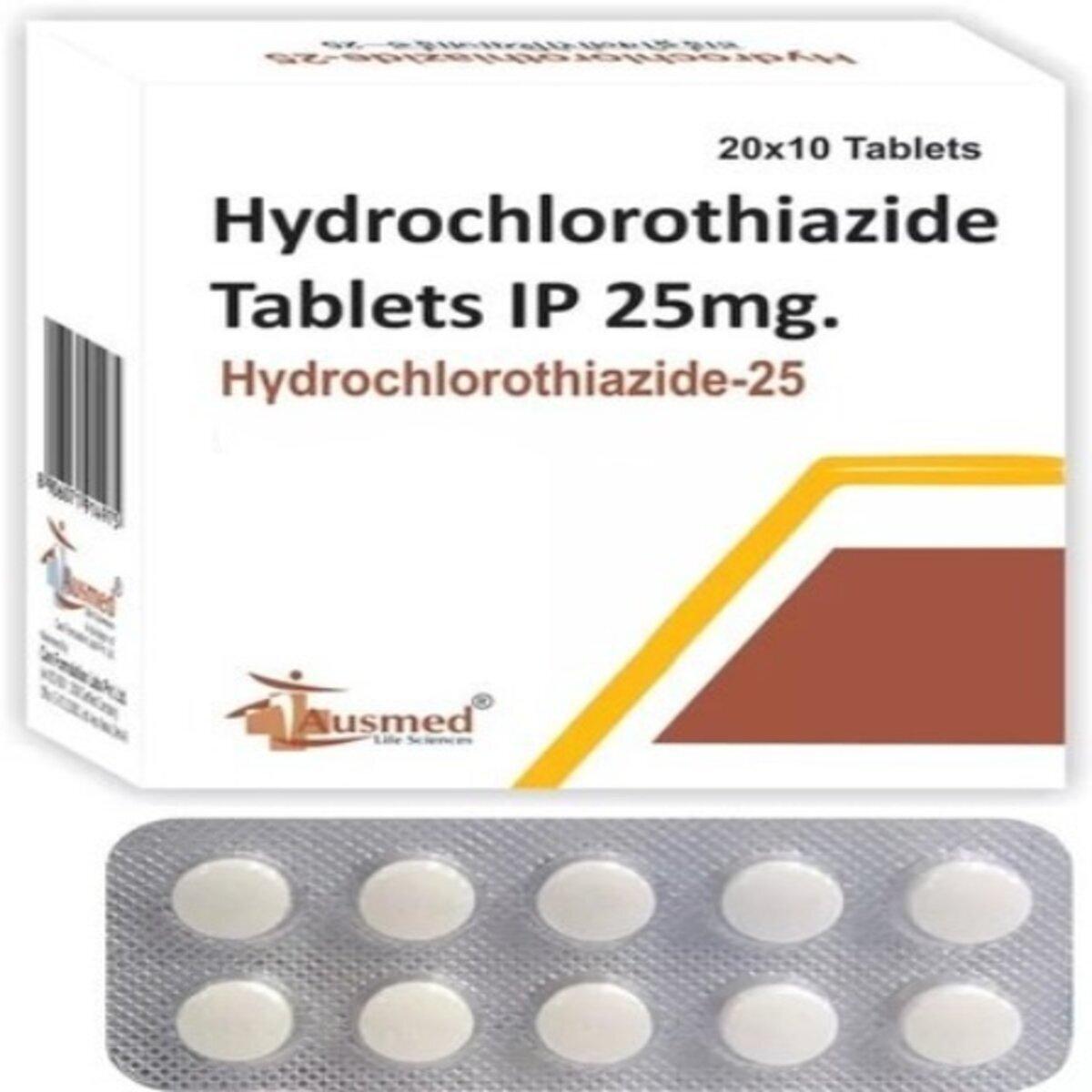Hydrochlorothiazide is a medication commonly used to treat high blood pressure (hypertension) and to manage fluid retention (edema) in various conditions. Here’s information about its uses, benefits, common symptoms, and potential side effects: Hydrochlorothiazide Tablet Uses Benefits and Symptoms Side Effects

Uses and Benefits of Hydrochlorothiazide:
- Hypertension: Hydrochlorothiazide is primarily prescribed to lower high blood pressure. By increasing the excretion of water and salt through the kidneys, it helps relax blood vessels, reducing the resistance to blood flow and lowering blood pressure.
- Edema: Hydrochlorothiazide can be used to manage edema associated with various conditions, including heart failure, liver disease, kidney disease, or as a side effect of certain medications. It promotes diuresis, helping the body eliminate excess fluid and reduce swelling.
Common Symptoms and Side Effects of Hydrochlorothiazide:
- Increased Urination: Hydrochlorothiazide is a diuretic, which means it increases urine production. This can lead to more frequent urination.
- Electrolyte Imbalances: Hydrochlorothiazide can cause electrolyte imbalances, particularly low levels of potassium (hypokalemia), sodium (hyponatremia), and magnesium. Regular monitoring of electrolyte levels may be necessary.
- Dehydration: Increased urination due to hydrochlorothiazide can lead to dehydration, especially in hot weather or during intense physical activity. It’s important to maintain proper hydration and seek medical attention if signs of dehydration, such as excessive thirst, dry mouth, dizziness, or decreased urination, occur.
- Low Blood Pressure: Hydrochlorothiazide can cause a drop in blood pressure, resulting in symptoms such as dizziness, lightheadedness, or fainting. It’s important to monitor blood pressure regularly and adjust medication dosages as needed.
- Skin Sensitivity to Sunlight: Some individuals may experience increased sensitivity to sunlight while taking hydrochlorothiazide, leading to a higher risk of sunburn or rash. It is advisable to use sunscreen and protective clothing when exposed to sunlight.
- Gastrointestinal Symptoms: Hydrochlorothiazide may cause gastrointestinal symptoms such as nausea, vomiting, or diarrhea.
- Allergic Reactions: In rare cases, hydrochlorothiazide can cause allergic reactions characterized by symptoms such as rash, itching, swelling, or difficulty breathing. Seek immediate medical attention if you experience any signs of an allergic reaction.
It’s important to take
hydrochlorothiazide as prescribed by your healthcare professional and follow their instructions regarding the dosage and frequency of administration. Inform your healthcare provider about any pre-existing medical conditions, medications, or supplements you are taking, as they can interact with hydrochlorothiazide.
If you have any concerns or experience
troubling side effects while taking hydrochlorothiazide, consult with your healthcare provider for further evaluation and guidance. They can provide personalized advice based on your specific medical history and condition.
Hydrochlorothiazide Tablet Uses Benefits and Symptoms Side Effects Hydrochlorothiazide Tablet in hindi Hydrochlorothiazide Tablet in hindi







